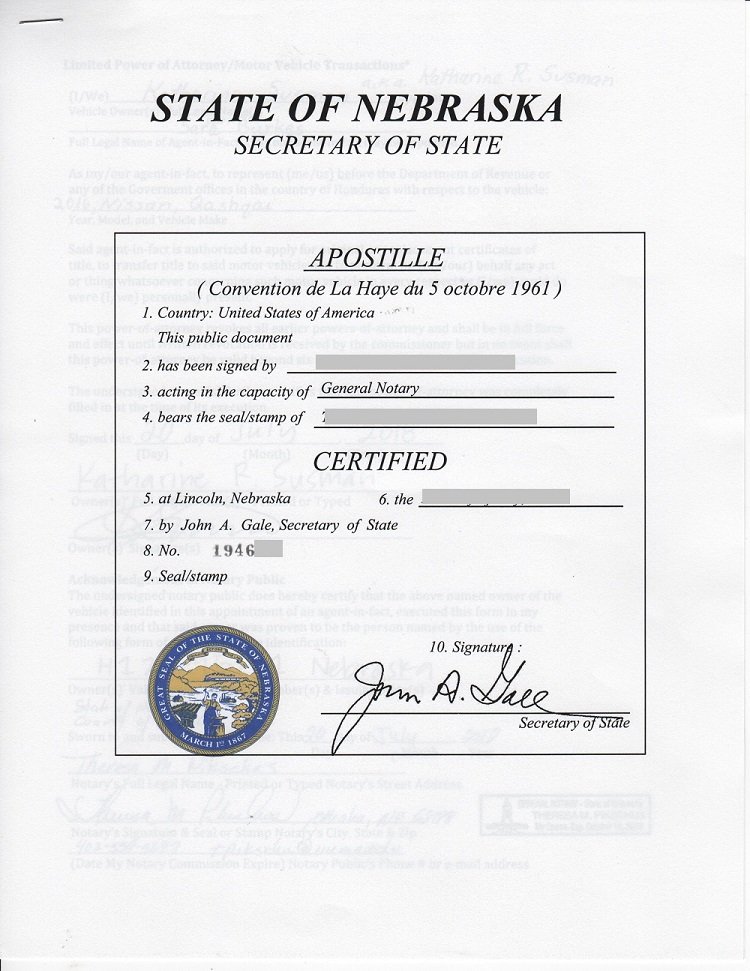Understanding the Apostille Refine: A Comprehensive Overview to International Record Verification
Browsing the intricate landscape of worldwide file verification can be intimidating without a clear understanding of the apostille procedure. This guide thoroughly details the necessary steps, from recognizing which papers call for certification to submitting them for confirmation by the Competent Authority. Grasping the significance of an apostille and recognizing potential mistakes, such as incomplete submissions and language barriers, can substantially streamline the verification trip. What specifically specifies an apostille, and why is it so vital for records destined for Hague Convention nations? These inquiries develop the structure of our expedition right into this vital legal treatment.
What Is an Apostille?
An apostille is a main accreditation that validates the authenticity of a file for usage in one more nation. This accreditation, issued by a designated authority in the country where the file came from, ensures that the file is recognized as legitimate and reputable in the global sector. The process of obtaining an apostille includes several steps, including the confirmation of the file's signatures, seals, and stamps by appropriate governmental bodies.
The apostille acts as an internationally acknowledged form of verification, implemented by the Hague Convention of 1961. This treaty, officially called the Hague Convention Eliminating the Demand of Legalisation for Foreign Public Papers, systematizes the procedure of record certification amongst member nations. The apostille itself is a standard certification that consists of particular info, such as the issuing authority, the native land, and the date of issuance.
It is very important to note that not all papers are qualified for an apostille. Generally, public files like birth certifications, marriage licenses, court orders, and instructional diplomas receive this qualification. Exclusive papers, such as contracts and agreements, may require registration and extra actions to qualify.
Importance of Apostille
Recognizing what an apostille is establishes the stage for valuing its value in global ventures. houston tx apostille. An apostille, essentially a kind of certification released by an assigned authority, confirms the authenticity of a paper for usage in international nations that are notaries to the Hague Apostille Convention. This standardized procedure removes the demand for additional legalization by consular offices or consulates, therefore enhancing worldwide purchases
It ensures the reliability and acceptance of necessary documents-- such as birth certifications, marital relationship licenses, and instructional diplomas-- across borders. For services, it promotes the smooth conduct of global trade, mergers, and procurements by supplying a trusted method of record verification.
Furthermore, an apostille enhances lawful safety and conformity. Governments and institutions can confidently count on the credibility of papers birthing an apostille, minimizing the risk of scams and misrepresentation. Therefore, the apostille functions as a critical tool in advertising international participation and trust. Its function in fostering reliable and safe and secure international deals emphasizes its vital worth in today's interconnected globe.
Files That Call For Apostille
When participating in global transactions or legal matters, specific records commonly require the verification supplied by an apostille. This guarantees their recognition and acceptance in countries that are notaries to the Hague Apostille Convention. Frequently, personal papers such as birth certifications, marital relationship certificates, and fatality certificates call for an apostille, especially when they are used for processes like migration, marital relationship abroad, or worldwide probate issues.
Educational papers are another classification frequently requiring apostilles. Diplomas, records, and scholastic documents often need this verification for functions such as going after more education and learning, work, or professional licensing in a foreign nation (houston tx apostille). This action guarantees that the Continue records are acknowledged as legit and legitimate
Legal documents, consisting of powers of lawyer, Check This Out affidavits, and court orders, additionally frequently necessitate apostilles. Organization documents such as certificates of consolidation, bylaws, and commercial contracts might call for an apostille to promote global profession, develop international branches, or take part in cross-border lawful procedures.
Steps to Acquire an Apostille

Acquiring an apostille entails a multi-step procedure that makes sure the authenticity and approval of your files in foreign nations. The first action is recognizing which files need an apostille. houston tx apostille. Usual documents consist of copyright, marital relationship licenses, scholastic records, and company documents
As soon as identified, the document must be certified by the suitable issuing authority. This may involve registration by a notary public or verification by a neighborhood or state official, depending upon the kind of file. After accreditation, the paper needs to be sent to the marked Competent Authority in the document's native land. In the United States, as an example, this is commonly the Assistant of State's workplace for each and every state.
The entry procedure normally calls for a finished application type, the original document, and a cost. Some jurisdictions might provide the alternative of expedited handling for an additional fee. Upon successful confirmation, the Competent Authority will affix the apostille certification to the document, consequently validating its credibility.
Typical Difficulties and Solutions
Navigating the apostille procedure can provide several common challenges More Info that, if not properly dealt with, might postpone or complicate record authentication. Each nation has specific requirements for the kinds of records that can be apostilled, and any type of inconsistency from these can result in being rejected.
One more usual difficulty is recognizing the diverse handling times. Processing times can vary dramatically between nations and even between different regions within the same nation. It is crucial to represent these variations when planning the apostille process to prevent unexpected hold-ups.
Furthermore, language obstacles can present considerable barriers. Records in a foreign language commonly need licensed translations, and any type of errors in translation can lead to further issues. Engaging a professional translation solution can minimize this threat.

Conclusion
Understanding the apostille procedure significantly enhances the performance of international document verification. By comprehending the necessity of identifying and licensing called for papers, and navigating the submission to the Competent Authority, the procedure becomes more manageable.